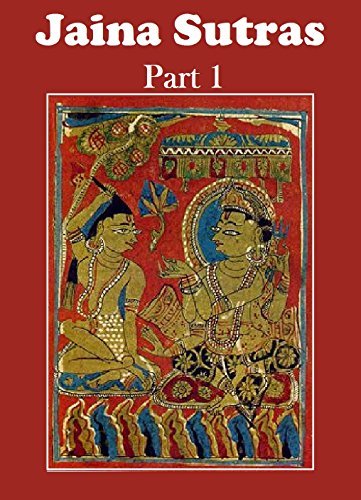Acaranga-sutra
by Hermann Jacobi | 1884 | 71,211 words | ISBN-10: 8120801237 | ISBN-13: 9788120801233
The English translation of the Acaranga Sutra, which represents the first the 12 Angas in Shevatambara Jainism. It is traditionally dated to the 5th-century BCE and consists of two parts containing lectures based on the teachings of Mahavira. Topics include: lifestyle of an ascetic: conduct, behavior, collecting alms, clothes, mode of walking and ...
Lecture 3, Lesson 1
[Third lecture (uddesaya, uddeśaka): Hot and cold]
The unwise sleep, the sages always wake. Know, that in this world the (cause of) misery[1] brings forth evil consequences! Knowing the course of the world[2], one should cease from violent acts. He who correctly possesses[3] these (sensual perceptions), viz. sounds, and colours, and smells, and tastes, and touches (1), who self-possessed, wise, just, chaste, with right comprehension understands the world, he is to be called a sage, one who knows the law, and righteous. He knows the connection of the whirl (of births) and the current (of sensation with love and hate). Not minding heat and cold, equanimous against pleasure and pain, the Nirgrantha does not feel the austerity of penance. Waking and free from hostility, a wise man, thou liberatest (thyself and others) from the miseries. (2)
But a man always benighted, subject to old age and death, does not know the law. Seeing living beings suffering, earnestly enter a religious life[4]. Considering this, O prudent one, look!
Knowing the misery that results from action,
The deluded and careless one returns to life; Disregarding sounds and colours, upright,
Avoiding Māra one is liberated from death[5].
Carefully abstaining from pleasures and ceasing from bad works he is a hero, guarding himself, who is grounded in knowledge[6]. (3) He who knows the violence done for the sake of special objects, knows what is free from violence[7]; he who knows what is free from violence, knows the violence done for special objects. For him who is without karman, there is no appellation[8]. The condition of living beings arises from karman.
Examining karman and the root of karman, viz. killing[9], examining (it) and adopting its contrary[10], he is not seen by both ends[11]. Knowing this, a wise man who knows the world and has cast off the idea of the world, should prudently conquer the obstructions to righteousness[12]. Thus I say. (4)
Footnotes and references:
[1]:
I.e. ignorance and delusion.
[2]:
Regarding the evil-doer.
[3]:
And renounces.
[7]:
I.e. control.
[8]:
As man, god, hell-being, young, old, &c.
[9]:
See p. 28, note 4.
[10]:
Literally, the left side (savyam); control is intended.
[11]:
I.e. he is not touched by love and hate, which cause death.
[12]:
See I, 2, 6 (2).
